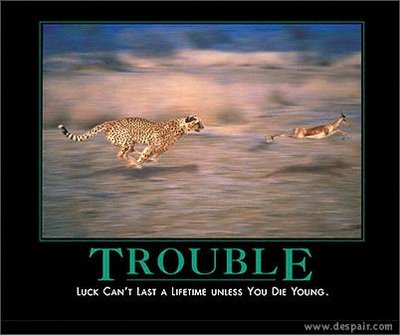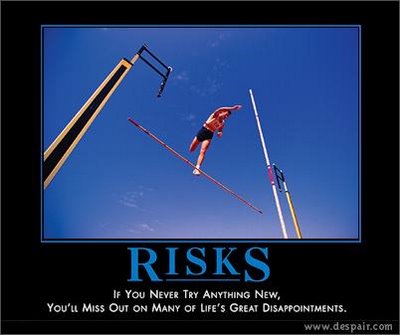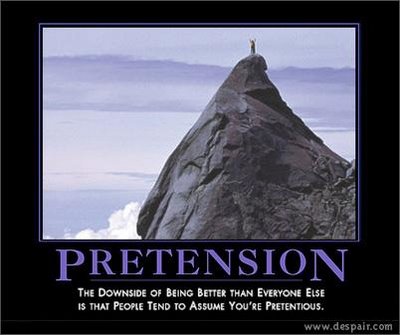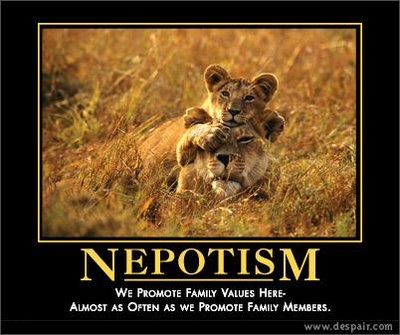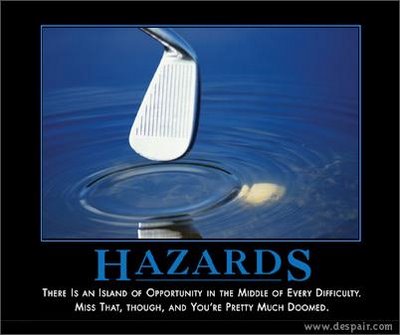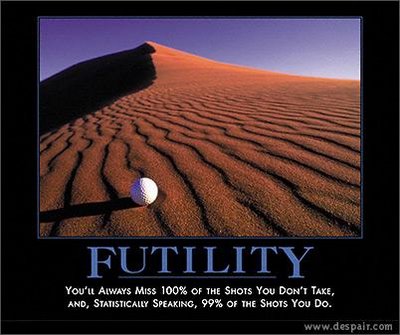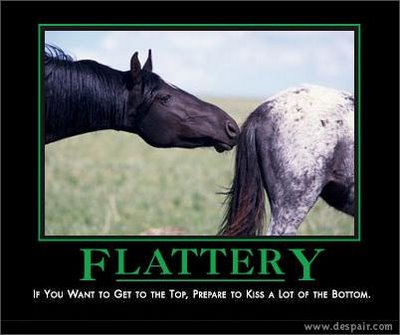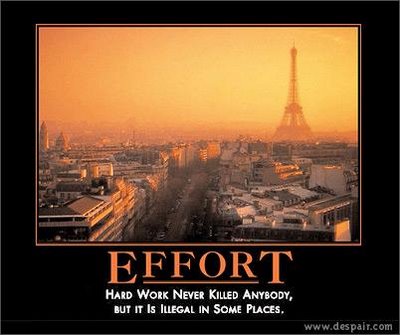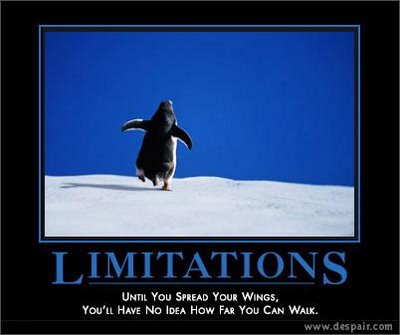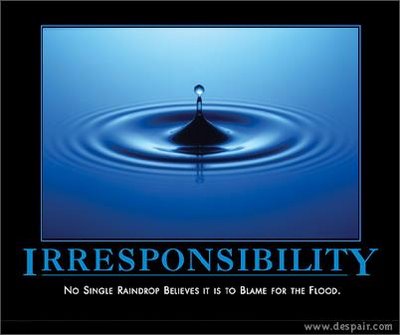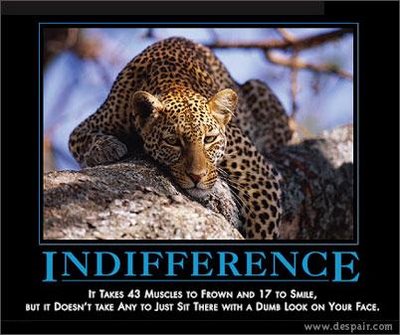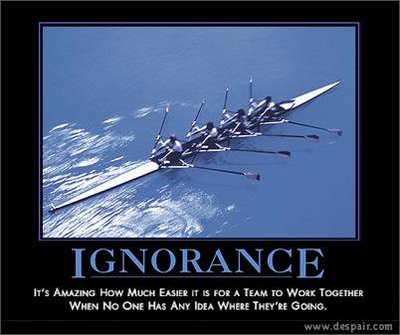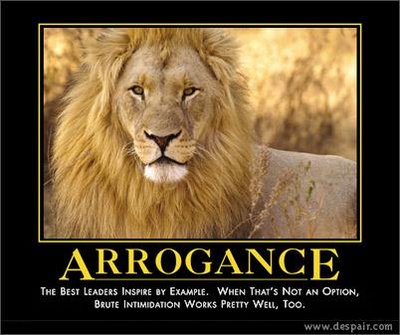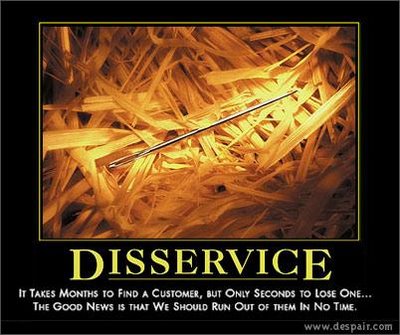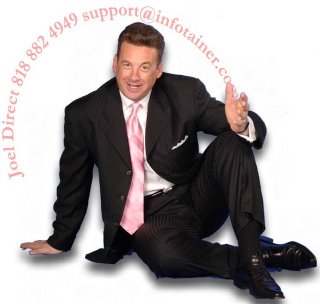Over the years I have been asked on numerous occasions to tell how I became the Goodwill Ambassador for Southwest Airlines.
Many times the people asking these questions have aspirations about doing something similar to follow a dream of becoming a professional speaker.
I share the following with the hope that it may be helpful to any others who may have in interest in doing something similar to what I did to pursue my dream of becoming a full time professional speaker.
This question and answer format is from actual email interactions with Brianna and Stephen, two people who have dreams of public speaking.
First, excerpts from Brianna’s email:
"Back in Dec. 2004 I attended a fireside where you spoke to the Young Single Adults and I was inspired with your message. I remember you previously worked for Southwest Airlines as a motivational speaker.
"I found that intriguing as I LOVE, rather am PASSIONATE, to speak in front of people. As odd and unusual as it is, I honestly do enjoy spending my time preparing for and delivering a good message to an audience. This love of people and speaking to them brings me to my questions.
1. What type of degree, if at all, does it take to become a motivational speaker?
2. How do I go about getting involved with a company to do motivational speaking, as well as, where do I go to get the entire process rolling?
"I have done some Internet research and I haven't been able to find those questions. I am desirous to share my talents with others and couldn't help but remember your fireside and the excitement and enthusiasm with which you spoke. I am hoping that you will be able to answers these questions so that I will be able to get myself on the right track and follow a dream.
"Thank you so much for your time I truly appreciate it.
Brianna"
***
Brianna…
FYI: My middle daughter’s name is Briana (with one “n”). Great name. : )
In response to your questions…
1. What type of degree, if at all, does it take to become a motivational speaker?
- A degree was not a factor for me. Just a vivid imagination and a willingness to act on impressions that resulted from my using my imagination.
2. How do I go about getting involved with a company to do motivational speaking, as well as, where do I go to get the entire process rolling?
- Brianna, perhaps the following will best answer your question.
- Howard Putnam, the former CEO of Southwest Airlines, who gave me the opportunity back in 1979 to prove my claim that I could generate PR for Southwest Airlines, introduced me a few months ago, via email, to someone he is mentoring: Stephen J. Hopson, World's First Deaf Instrument Rated Pilot. Stephen is pursuing his passion to become a professional speaker. He sent me a number of questions about how I did it.
Hope the following answers to Stephen’s questions answers your basic questions and perhaps some others.
1. What was the defining moment that led you to create a proposal and ask SWA if you could become their GWA (Goodwill Ambassador?). In other words, why did you want to do it? What was going on in your life that made you think of this?
- Heard about another speaker – Ira Hayes – who had done something similar for NCR Corporation. Had an overwhelming impression to do this for Southwest. Was also encouraged by a man named Bill McGrane, now deceased, to go for it…that I had nothing to lose.
2. What did your proposal say would be the value provided to SWA as their ambassador? How did you convince them this was a good marketing tool?
- Again, I followed impressions. Had an impression to call a friend named Mike Murray, who led Creative Problem Solving Workshops at the time, and told him about my impression to become Southwest Airlines’ Goodwill Ambassador. He recommended a question and answer format for the proposal.
- We brainstormed the questions we suspected Howard Putnam would ask me and Mike said it was critical I ask Howard these questions first – to maintain his interest:
1) Why would Southwest want a Goodwill Ambassador?
2) How will you market this?
3) How would we pay for this?
4) What if you’re not any good?
We brain-stormed possible answers:
- Once the proposal was done, I had a major challenge. My challenge? I didn’t know Howard as he was the brand new president and he didn’t know me. Once again, I received an overwhelming impression around 2:30pm on a Monday afternoon to call his office. When Sherry Phelps, his secretary answered the phone, I suddenly realized I had no idea what I was going to say. Something took over and what I heard myself say, “Sherry, my name is Tony Brigmon. I’m a supervisor in reservations. Will you please tell Mr. Putnam I’m on the line. Tell him I have the answer, but I’m not quite sure about the question?”
- Have no idea where that came from. What I do know is that Sherry asked me if I was serious. Told her, “I think I am.” She repeated my words to Howard, and she later told me he replied, “Tell him to drive (from Arlington) over to my office (in Dallas) when his shift is over. I’ll wait for him. I’d like to hear the answer!”
- Howard invited me into his office, asked me to sit down, pulled up a chair almost knee to knee. Then, in his direct and sometimes intimidating manner back then, asked, “So, what’s the answer.” I replied I had a PR idea whose time had come. He asked, “So, what’s the question?” I responded, “Will you recognize it?” He chuckled. I then proceed with, “I propose to become Southwest Airlines Goodwill Ambassador.” and then went immediately into my questions:
1) Why would Southwest want a Goodwill Ambassador?
- Howard bluntly said, “Why would we?” I replied…
- It would be great PR, as virtually no one else was doing this, only Ira Hayes with NCR. Plus, I proposed that once I had the audiences in fun, we could hold drawings for free passes, etc. on Southwest. When I return to Southwest I would hand off the cards to Marketing and they could follow up with a “get acquainted” call the next day saying something like: “Just calling to follow up on the program we sponsored yesterday with Tony Brigmon. How did it go? Glad you enjoyed it. By the way, we have some information on Rapid Rewards, etc. we’d like to pass along to you. Would that be okay?”
- In other words, the presentation would give them a foot-in-the-door as compared to cold-calls.
2.) How will you market this?
- I will call the Civic and Service groups, who are dying for entertaining programs, informing them that we now have a Speakers Bureau at Southwest and would be willing to provide a complimentary, G-rated, entertaining program for them. All that I ask is that you send your feedback in two or three sentences – positive or negative – to Howard Putnam.
3) How would we pay for this?
- The people who attend the Rotary, Kiwanis, Chamber and other civic club meetings make decisions about their own events where they are looking for unique programs. After my presentation, if they really like it, they will walk up and ask me what I would charge to do the same thing they had just experienced for their own organization. I will charge them and fee and reimburse Southwest 50% of that fee. Once it catches on I will be paying my own way.
4) What if I’m not any good?
- I invited Howard to attend a presentation at the Lind Paper Company, located a few blocks from the Corporate Office at that time on Regal Row in Dallas. To my surprise, he not only came, but he brought two other VPs with him. He saw the program, gave it some thought for three days, and called me in. Said he would give me a 6 month trial. If I was successful in generating PR in a measurable way I would become Southwest Airlines Goodwill Ambassador. If I was unsuccessful I would lose my current job as supervisor in reservations and have to start all over with the company at day one pay and day one seniority. I accepted, but did not reveal these terms to my wife. : )
I was now motivated and I suspect Howard knew his terms would definitely motivate me. He was right.
3. How was SWA able to directly measure the results of your efforts as their GWA?
- Howard received over 60 letters commendation letters in that 6 month trial. Since he responded personally to all his mail at that time, he could see in a measurable way through the feedback that the PR idea was working.
3a. What type of audiences did you speak to? Why them?
- Began with the civic and service groups because they had monthly meetings, and because my programs were complimentary, I could get in front of a lot of groups. Once they found out about my unique program and the irresistible fee (FREE), the referrals began coming in.
4. What were your topics?
- With the help of Bill McGrane in Cincinnati, who had a unique ability to interview others and help them build a presentation around their unique ability, I put together a new program which emphasized my unique ability to get people to do fun things they normally wouldn’t do. At his recommendation, I used the tools of G-rated humor, music and song (I write fun songs), story sharing and interactive techniques. Bill interviewed me for one full day, asking me about my life experiences, positive and negative, humorous experiences, while he took vigorous notes. Those notes of my real life experiences became the core of my new presentation: “Are We Having FUN, Yet?”
- Howard funded this session to the tune of $1600.00. The result was that I ended up with a presentation that was based almost totally on my abilities and life experiences. When I began giving this new presentation back in Texas the response was incredible. Not one negative letter to Howard and many referrals to other groups for fees.
- My program title and description evolved over the years and today my two signature keynote presentations are: “Are We Having FUN, Yet?” and “The CARE Principle!” which support exactly what Southwest was and is all about: Fun and Caring.
- *** FYI: Howard Putnam okayed a $10,000 loan for me to orchestrate the over 20 fun songs I wrote at that time. Songs with titles like, “You Can Lock Me Up in Jail, But You Can’t Keep My Face From Breaking Out”, etc.. Audiences loved them and I sold over $20,000 worth of them my first year, repaying the no-interst loan within that time.
5. How often were these talks scheduled? Was it part of your job as GWA to schedule the gigs yourself?
- I did as many as I could. It was solely my job to schedule these presentations. Fortunately for me, word of mouth spreads quickly in Texas. From May 1979 to the end of that year, I spoke to over 60 groups. The following year, I spoke to over 250 different groups, which led to a lot of fee-paid engagements.
6. Were you a full-time ambassador or did you do this in addition to your job in reservations?
- Almost full time. My agreement with Howard was that when I wasn’t setting up and doing presentations I was to help Tom Volz, V.P. of marketing, in whatever way he needed: Marketing blitzes, etc. Tom was a delight to work for and very supportive of my Goodwill Ambassador Role.
7. When you began the Ambassador position, were you already an established speaker or is this how you launched your incredible speaking career?
- No, not really. Began my speaking efforts two years previously through Toastmasters. I did a few presentations before Howard saw me, but not many. The program I put together with Bill McGrane’s help, however, was so unique and so “me” that the Meeting Planners found it engaging, refreshing and energizing to their attendees. (Based on actual feedback) It was my exposure while representing Southwest Airlines as their Goodwill Ambassador that launched my speaking career.
8. If you were not yet an established speaker with a wide audience, how did you convince SWA you were the person to fill that role?
- Divine intervention. The good Lord sent Howard Putnam to be the president of Southwest Airlines. I do not believe that any one else at that time would have been willing to risk my representing Southwest like he did. Sure, he saw me do a presentation, but it was nothing like the one I ended up doing. Not sure what he saw in that first presentation. I did a fun song with my guitar at the conclusion that received a great response from the audience. Maybe that was it, not sure.
- It’s back to what I said earlier: Howard has a gift of intuition about things that will work and I suppose he trusted that intuition. Lucky for me.
- Many times I wanted to pinch myself because I couldn’t believe I was getting to live my dream. I worked hard…very hard to get better. Paid a professional evaluator, out of my pocket, several thousand dollars to review my presentations, helping me smooth out rough spots in the way my presentation was organized, and my program kept getting more and more effective. Word of mouth was kind to me.
9. At what point did you leave SWA and strike it out on your own?
- When Howard went to Braniff, I began to receive more and more inquiries from executives (not my boss Tom Volz) about how well I was doing financially. It didn’t take me long to see that if I gave them “specifics”, some of them might be resentful, as the 50% of the speaking fees was causing my income to approach some of theirs. That’s when I approached Herb Kelleher about becoming an independent contractor. Herb finally agreed, when he saw the potential financial conflict with other execs. Southwest, for many years, provided 100 passes a year for me to fly to engagements until my reputation became established.
- Well…whew…deep breath…this is probably way more of an answer than you bargained for, but I wanted to give your questions my best shot. Hope this helps.
Best wishes to you, Stephen, as you pursue more of your dreams…
Tony
More questions from Stephen Hopson…
1. While you were ambassador, did you spend all your time calling and writing service clubs to set up engagements?
- Not all my time. I would call until I was out of energy for making calls. "When the energy pool is depleted on any given project, it's time to move on to another. That's one sure way you avoid burn out." - Tony Brigmon. When I finished my calls, I would let Tom Volz know and he would have something else for me to do.
- I researched the contact information on local civic and service groups and then called asked for the current Meeting Planner - or person currently responsible for setting up programs. My script? It went something like:
"I'm calling from Southwest Airlines. My name is Tony Brigmon. Just wanted to let you know we now have a speakers bureau at Southwest and we are providing G-rated, entertaining presentations to all civic groups on a first-come, first-serve basis. There will be no charge for the presentation and Southwest will fly me - free of charge (if it was an out-of-town group). The only expense involved would be hotel and any other out of pocket expenses at the event. Just wanted you to know we will be offering this all over the country, so if there's an interest please let us know ASAP, so we can accommodate you."
- No writing, just calls, as I did not have any confidence - as in zero - in my writing ability in those days. I was way too wordy, and definitely unclear in any written communication. Thus, Howard's recent compliment, "You write with clarity and to the point" gave me more satisfaction than you can possibly imagine, as that has not always been the case. And it reinforces what I have suspected all along: You can improve with practice and patience.
What kind of organizations did you contact and where were they located?
- Rotary, Lions, Kwanis - all civic groups, even some Chambers in the beginning. I learned pretty quickly about who attends these meetings. The Rotary Club: They own the town. The Kwanis Club: They manage the town. And the Lions Club: They enjoy the town. : ) And that's pretty close to reality.
Were they all in Texas or across America? You spent most of your time making contacts when you first started, is that right? Hint: I'm trying to imagine what I'll do the moment they give me the opportunity to be their next ambassador.
- Started out in Texas and then spread to other Southwest cities - even some non-Southwest cities. The groups in the non-Southwest cities picked up the expense for my air travel, plus other expenses. Like I stated earlier in this email: I would call until the first signs of wearyness and then do something else. It didn't take long, however, for the word-of-mouth to spread. In fact, it spread like wildfire.
2. If you traveled across the country, I imagine you had a lot of overnight stays. Who paid for these?
- Again, the civic group paid for all overnight, ground transportation and any other ouf of pocket expenses once I was there.
3. If and when you visited distant towns for overnight stays, did you do several gigs on the same day (and/or spread them out over a couple days) before embarking on your next trip? Hint: I would want to give SWA value for each trip I make. Instead of traveling to a distant city and speaking to one club with maybe 30 people, I think I ought to speak to several clubs with a combined total of several hundred people, giving SWA value in return for the cost of flying me to that city.
- Almost always, they were one-gig events. I am not by nature very organized, although I love to give the appearance I am. Now my wife Charlotte: She is organized! (Lucky for me!) Speaking to several clubs in an area would be ideal and definitely give Southwest a better return on their investment.
4. Approximately, how many engagements a week were you doing as ambassador?
- Did 60 prsentations during the 6 month trial in 1979. Over 200, I believe, during 1980. I believe all 60 of those first 60 Meeting Planners sent letters of commendation to Howard, necessitating a response from him - as that was one of Howard's traits (probably still is) to personally respond to his mail rather than delegate it.
- On the average, it was about 2-3 programs per week, sometimes less, sometimes more.
- In fact, I remember Howard calling me into his office at about the six month mark asking me in his direct manner, "How are you getting these people to write these letters."
- Told him, "I tell them we now have a Speakers Bureau at Southwest and that I am authorized to make complimentary presentation to the civic group, including free airfare to and from the event. The only thing we ask, other then out of pocket expenses at the event, is that you sent you honest feedback - positive or negative - in two or three sentences to Howard Putnam, CEO of Southwest."
- The Meeting Planners were delighted to do it, because I had helped them look good by providing an entertaining and insightful program for zero fee, other than travel expenses. And their feedback provided the "proof" Howard needed to allow me to become the full time Goodwill Ambassador for Southwest Airlines.
An idea occurred to me that between now and July maybe I ought to start making contacts across America and introduce myself saying that "if I were to have my travels paid for, would you be willing to contribute to the cost of lodging while I stayed in town for a few days?" This way when comes time for me to submit a proposal to SWA, I'll be able to demonstrate proof of interest in having me speak. I'll be able to hit the ground running if SWA were to bring me on board. All I would have to do is simply set up the dates with people who previously indicated interest. I wouldn't have to spend so much time in the office making calls and sending out letters. Gentlemen, what do you think?
- Sure, something like that could definitely demonstrate to Southwest your passion and willingness to work. It might be difficult for them to get excited about having you, Stephen, unless they have heard you. In my case, no one had ever heard of Tony Brigmon and would have had to be really "sold" to book me. But they certainly had heard of Southwest. And because I was "officially" representing Southwest, the logical conclusion was, "This program must be pretty good or Southwest would not risk a "black eye" having someone embarrass them with a really bad program." What I do know is once they knew I was part of the Southwest team, and that it was FREE, the gig was on!
- That put the pressure on me to make sure that every one of my programs was entertaining, insightful and exciting. My belief at that time was that if just one of those Meeting Planners reported a "bad experience" my gig was over. And I still believe that. The pressure was worth it, Stephen, as it forced me to keep getting better and better.
Another question.....how and when did you start getting paid engagements? For example, did someone from one of those civic organizations approach you and ask how much you charged for speaking engagements? Is that how it all started for you? Or was it a meeting planner who heard about you? How long was it between the time you started as an ambassador and the time you got your first paid gig?
- The real proof you are getting "good" is when someone walks up to you after your presentation and asks, "What would you charge to come do what you just did for our organization?" Doc Blakely, mentor and friend from Wharton, TX, taught me a great response that has served me well over the years, when pressed for a fee quote: "What are your budget constraints for your meeting? What would the fee need to be to make it work for you? I reserve the right to help people out when there are legitimate constraints."
- I suspected the more groups I got in front of, the more people would see me and book me for fee-paid events.
- If they insisted on knowing my fee, I would quote them a "healthy one". Back in those days it might have been $1000, plus out of pocket expenses once I arrived. My first paid engagement was $250 for the North China Prisoner of War group. Couldn't resist saying at that program, "This gives new meaning to speaking to a captive audience." : )
- My first fee-paid gig happened just after my 6 month trial I believe, although I can't remember exactly.
- Bottom line: I rarely turned down a program due to the smallness of an honorarium, as my philosophy then and now is: "A little bit of something beats a big bag of nothing."
- Besides, I saw each presentation as a marketing opportunity, and it is especially fun when I am getting paid to market.
- In my case, since I wasn't a celebrity (hadn't written a book, or been a CEO of a major organization, or movie star) it took about 15-20 years to become an overnight success. : )
- In your case, Stephen, having done some amazing things, including writing a book, TV, etc. I suspect things will take off very quickly for you, as long as you keep paying the price for getting better and better.
"Marketing may get you your first appearance in front of a group, but you will have to deliver to be invited back." - Tony Brigmon
Well, my friend, that's all I have left in my "energy pool" for now. :)
Hope this helps…
Tony Brigmon
- Keynote Speaker and Emcee
- Former Goodwill Ambassador for Southwest Airlines
- Author and Singer of Feel Good Songs
- Creator of Tony-isms (Pearls of Wisdom)
www.funmeetings.com
972-641-6615
